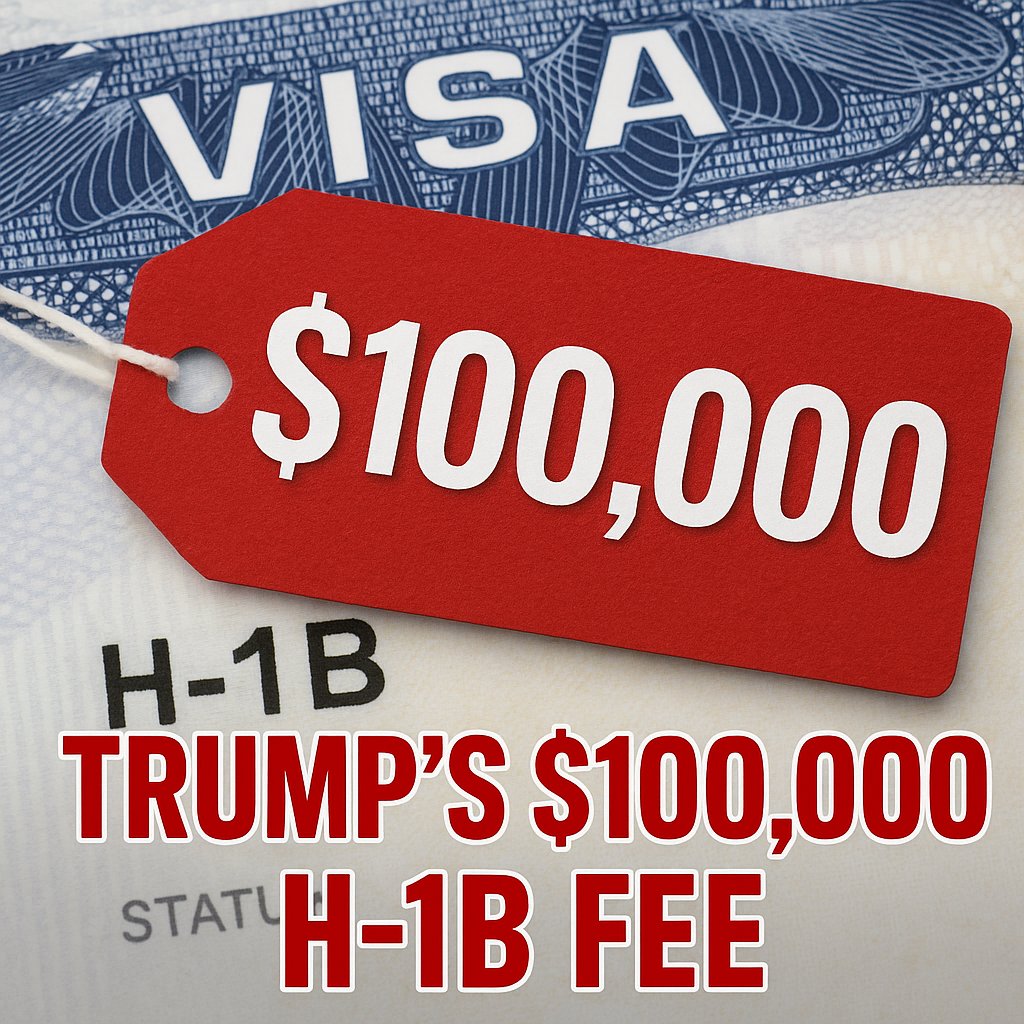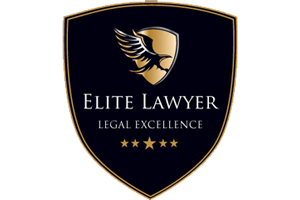- Free Consultation: (213) 251-5533 Tap Here to Call Us
Trump’s $100,000 H-1B Fee: A Game-Changer for U.S. Employers and Foreign Talent

In September 2025, former President Donald Trump issued a proclamation that introduced a staggering $100,000 annual fee for each new H-1B petition. This unprecedented change to the H-1B visa program has sent shockwaves through the business community, universities, and immigration law circles. Employers now face an entirely new cost calculus when considering whether to hire foreign talent under the H-1B system. Understanding the reasons for the fee, possible exceptions, and the ways employers may avoid or minimize the charge is critical for navigating this new immigration landscape.
The Trump administration justified the $100,000 H-1B fee as part of its broader “America First” agenda. Officials argue that the program has been overused, often at the expense of U.S. workers. By attaching a six-figure cost to every new H-1B petition, the government hopes to deter employers from relying on foreign labor for positions that could be filled domestically. The administration also claims the measure will protect American wages and restore fairness in industries like technology, engineering, and finance where H-1B workers are prevalent. While the stated priority is to push businesses toward hiring U.S. graduates, the fee will also generate massive federal revenue, potentially funding immigration enforcement and administrative costs.
The proclamation has left many wondering whether there are exceptions to the $100,000 H-1B visa fee. Historically, certain employers have been exempt from H-1B caps, including universities, nonprofit research organizations, and government research bodies. In 2025, the Department of Homeland Security expanded cap-exempt eligibility to organizations that conduct research as a fundamental activity, even if it is not their primary focus. It remains likely that these categories will be exempt from the new fee, though the exact regulatory language has yet to be finalized. Another unresolved question is whether the surcharge will apply only to new petitions or also to H-1B extensions, amendments, and transfers. Until the implementing rules are published, employers should prepare for the broadest possible application.
Legal challenges to the Trump H-1B proclamation are almost certain. Critics argue that the Immigration and Nationality Act limits the executive branch’s ability to set fees that go far beyond cost recovery. A $100,000 annual charge looks less like an administrative processing fee and more like a deterrent designed to reshape labor markets, which could be struck down under the Administrative Procedure Act. Questions of separation of powers are also raised, since Congress has historically determined visa fees. Businesses, trade groups, and universities are already considering litigation to block or delay enforcement of the rule.
For employers, the most pressing concern is how to adapt to the $100,000 H-1B fee if it survives legal scrutiny. One potential strategy is to seek cap-exempt status by affiliating with universities or nonprofit research institutions, which may shield them from the surcharge. Another option is to explore alternative visa categories, such as the O-1 visa for individuals of extraordinary ability or the L-1 visa for intracompany transfers. These categories are not subject to the new proclamation and may be more cost-effective in certain circumstances. Employers might also focus on timing, filing petitions before the new rules are fully implemented, or prioritizing H-1B sponsorship for only the most critical roles where foreign talent is essential and justifies the expense.
The implications of this policy shift are enormous. For multinational corporations, the fee could represent millions of dollars annually in added costs. For small businesses and startups, it may effectively shut the door to hiring foreign specialists altogether. Universities and research institutions may be spared, but private-sector employers will face unprecedented financial barriers. If upheld, the Trump H-1B fee will not only change how companies recruit talent but also alter the global perception of the United States as a destination for skilled professionals.
Employers must act quickly to evaluate their workforce needs, explore alternative immigration strategies, and monitor regulatory guidance as implementation unfolds. The $100,000 H-1B petition fee is not just another administrative hurdle. It represents a profound shift in U.S. immigration policy, one that could reshape labor markets, corporate hiring strategies, and America’s role in the global competition for talent.
Legal Disclaimer
This article is intended for general informational purposes only and does not constitute legal advice. Reading it does not create an attorney-client relationship. Immigration outcomes depend on timely filing, individual case facts, and prevailing laws and policies. Please call attorney Thomas M. Lee at 213-251-5533 for a free legal consultation








